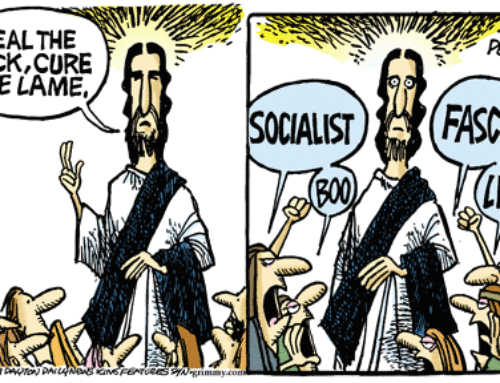
How brave do you feel today?
i am busy reading slowly through a book written by a guy called Ron Sider, titled, ‘Rich Christians in an Age of Hunger’ and this chapter, which is about halfway through the book has the title, ‘A Biblical Attitude towards Property and Wealth’.
The book has been a good book. i think because i have already been thinking about and wrestling with a lot of the things it speaks about for so long now, that i haven’t been particularly blown away by what i’ve read. But this chapter made me realise why this book is so highly rated. And it is NOT for the faint of compromising heart.
i invite you to read this with an open heart and an open mind and ask yourself two key questions:
[1] Is what he is writing true? Test it against scripture as we are always meant to do and decide for yourself whether what he is suggesting is actually how God is calling us to live when it comes to these things.
[2] If it IS true, what am i going to do about it? Don’t get inspired by a powerfully written passage that you agree with and then continue to live the same way. Be prepared that if what you are about to read is actually true and right, that you may never go back to living the way you have been ever again.
This is not the whole chapter but it is a rather large part of it and well worth the read, so print it out if you can, but also get hold of the full book and read it all. It is very much worth it.
= = = = = = = = = =
A CAREFREE ATTITUDE TOWARDS POSSESSIONS
Jesus calls His followers to a joyful life of carefree unconcern for possessions:
I bid you put away anxious thoughts about food to keep you alive and clothes to cover your body. Life is more than food, the body more than clothes. Think of the ravens: they neither sow nor reap; they have no storehouse or barn; yet God feeds them. You are worth far more than the birds! Is there a man among you who by anxious thought can add a foot to his height? If, then, you cannot do even a very little thing, why are you so anxious about the rest?
Think of the lilies: they neither spin nor weave; yet I tell you, even Solomon in all his splendour was not attired like one of these. But if that is how God clothes the grass, which is growing in the field today, and tomorrow is thr0wn on the stove, how much more will He clothe you! How little faith you have! And so you are not to set your mind on food and drink; you are not to worry. For all these are things for the heathen to run after; but you have a Father who knows that you need them. No, set your mind upon His kingdom, and all the rest will come to you as well. [Luke 12.22-31, NEB]
Jesus’ words are anathema to Marxists and capitalists alike: to Marxists because they worship Mammon by claiming that economic forces are the ultimate causal factors in history; to capitalists because they worship Mammon by idolising economic success as the highest good. Indeed, at another level, Jesus’ words are the anathema to the ordinary, comfortable “Christian.” In fact I must confess that I cannot read them without an underlying sense of uneasiness. The beauty and appeal of the passage always overwhelms me. But it also always reminds me that I have not, in spite of continuing struggle and effort, attained the kind of carefree attitude Jesus depicts.
What is the secret of carefree living? First, many people cling to their possessions instead of sharing them because they are worried about the future. But is not such an attitude finally unbelief? If we really believe that God is who Jesus said He is, then we can begin to live without anxiety for the future. Jesus taught us that God is our loving Father. His word Abba (Mark 14.36) is a tender, intimate word like Papa. If we really believe that the almighty creator and sustainer of the cosmos is our loving Papa, then we can begin to cast aside anxiety about earthly possessions.
Second, such carefree living is an unconditional commitment to Jesus as Lord. We must genuinely want to seek first the kingdom of heaven. Jesus was very blunt. We cannot serve God and possessions. “No one can serve two masters; for either he will hate the one and love the other, or he will be devoted to the one and despise the other. You cannot serve God and Mammon.” (Matthew 6.24). Mammon is not some mysterious pagan God. The word mammon is simply the Aramaic word for wealth or property. Like the rich young ruler and Zacchaeus, we must decide between Jesus and riches. Like the merchant in Jesus’ parable, we must decide between the kingdom of heaven and our affluent life: “The kingdom of heaven is like a merchant in search of fine pearls, who, on finding one pearl of great value, went and sold all that he had and bought it” (Matthew 13.45, 46, see also 44). Either Jesus and His kingdom matter so much that we are ready to sacrifice everything else, including our possessions, or we are not serious about Jesus.
If Jesus is truly Lord and if we trust in a loving heavenly Father, then we can take courage to live without anxiety about possessions. That kind of carefree unconcern for possessions, however, is not merely an inner spiritual attitude. It involves concrete action. Immediately following the moving statement about the carefree life of the ravens and the lilies, Jesus says “Sell your possessions, and give alms; provide yourselves with purses that do not grow old, with a treasure in the heavens that does not fail… For where your treasure is, there will your heart be also” (Luke 12.33-34).
If there are poor people who need assistance, Jesus’ carefree disciple will help – even if that means selling possessions. People are vastly more important than property. “Laying up treasure in heaven” means exactly the same thing. “In Jewish literature, the good deeds of a religious person are often described as treasures stored up in heaven.” One stores up treasure in heaven by doing righteousness on earth. And aiding the poor is one of the most basic acts of righteousness. Jesus does not mean, of course, that we earn salvation by assisting the needy. But He does mean to urge His followers to be so unconcerned with property that they eagerly sell it to aid the poor and oppressed. Such activity is an integral part of living a life of joyful unconcern for possessions.
= = = = = = = = = =
There is a a fair amount of this chapter to go still, but let’s break there for a moment to reflect on what we’ve read so far.
[1] Is what i have just read True?
[2] If so, then what does that mean for how i live my life?
[For the next part of this passage looking at Selling all of our Possessions, click here]






[…] Continuing the passage i am sharing from the Ron Sider book, ‘Rich Christians in an Age of Hunger’, i’ll back up one paragraph just to remind us where we were: […]
[…] we continue to seek out A Carefree Attitude Towards Possessions through the lens of Ron Sider’s challenging book, ‘Rich Christians in an Age of […]
[…] with a read through of this chapter from Ron Sider’s ‘Rich Christians in an Age of Hunger’ starting where we left […]
Hi Brett. May I ask what edition of this book you are reading as I have a copy and it apparently went through several editions?Thanks.
Hi Steve, from the look of it this might be the original copy… says BR115.E3 at one point so might that be edition 3? It has the cover pic that i am using with these posts… but from the look it really feels like first edition but can’t find that…oh wait, in Acknowledgements looks like this is the British Edition [says it has been completely revised in Parts 1 and 3 with chapter 6 of Part 2 from the original American edition]… so that!
Ok, but what year is your edition? I think the original was 1977 but it was revised in the ’80s several times.
Has 1977 copyright. Can’t see any other obvious dates.
Thanks for your thought-provoking post. I read this book a couple of years ago. It both ruined me and saved me. The paragraph that you highlighted here reminds me of that well-known Kierkegaard quote we all try so hard not to remembert: “The matter is quite simple. The bible is very easy to understand. But we Christians are a bunch of scheming swindlers. We pretend to be unable to understand it because we know very well that the minute we understand, we are obliged to act accordingly. Take any words in the New Testament and forget everything except pledging yourself to act accordingly. My God, you will say, if I do that my whole life will be ruined.” What I have realised is the more I have “allowed” for my life to be “ruined” by these kinds of truths, the more I have been liberated to taste deep joy, peace and love. I am continually challenged by Ron Sider (I think I should re-read the book!) and others like him, and I still feel like I have so far to go along this journey, but grateful for God’s loving patience and Spirit’s guidance in small and bigger steps. To be honest, for me it has not yet come to the point of selling “possessions”, but it has meant acquiring less “possessions” and giving away more to those in hunger and need.
I love that Kierkegaard passage – one of my favourites and yes on the totally enhanced totally ruined bit of life. Wish this was mandatory reading for all Christians.
[…] [For a look at a Carefree Attitude towards Possessions, click here] […]
[…] A Carefree Attitude Towards Possessions […]
[…] is this series of posts i have been sharing from the book ‘Rich Christians in an Age of Hunger’ by Ron Sider, […]